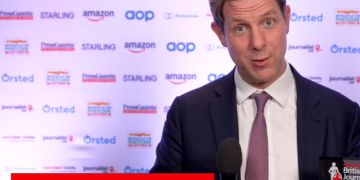London, UK – As the UK enters another energy-intensive winter, the country’s heating sector finds itself navigating a period of transition, uncertainty, and opportunity.
New data shows that more than half of UK households are unclear about the government’s plans to phase out gas boilers and adopt low-carbon alternatives.
In 2025, the government formally shelved its plan to ban all new gas boilers by 2035, opting instead for a less rigid regulatory framework that relies on efficiency standards and incentives.
While new homes will still be required to meet tougher energy efficiency metrics, the pathway for existing homes is now less prescriptive – placing a greater burden on consumer understanding and market forces.
Against that backdrop, the heating industry is seeing increased demand for heat pumps, hybrid systems, and smart boiler upgrades, supported by expanded subsidy schemes and planning reforms.
A recent policy change removed much of the planning permission requirement for heat pump installations, helping heat pump applications through the Boiler Upgrade Scheme rise by 54 % in the first half of 2025 compared with the same period in 2024.
However, uptake is uneven and confusion remains rife. According to a consumer survey of over 1,000 households, a majority are unaware of the changes to boiler regulations or how they might be affected.
Key Developments:
- Subsidies & Incentives: The government has extended grants and financial support under the Boiler Upgrade Scheme, encouraging households to adopt low-carbon heating systems such as heat pumps, hybrid boilers, and heat batteries.
- Planning Reform: The relaxation of planning restrictions (especially for units sited within one metre of property boundaries) has reduced delays and contributed to surging installations.
- Consumer Readiness Gap: Yet, despite incentives, many homeowners are unsure when or how to act – a problem that could slow the pace of decarbonisation and jeopardise climate goals.
Expert Insight: Jennifer Warren, EnergyGuide.org.uk
“The UK is at a pivotal moment in its heating transition. We have good policy building blocks – grants, planning flexibility, and efficiency standards – but the critical missing piece is consumer clarity,” says Jennifer Warren, Lead Analyst at EnergyGuide.org.uk.
“More than half of households don’t understand the boiler phase-out, and many are unsure whether to replace their old boilers with greener alternatives or wait. That indecision dampens market momentum and raises the cost of delayed action.”
“To accelerate progress, we need a concerted awareness campaign nationwide – using trusted local channels and installers – to translate policy into confident, informed choices.”
Warren adds, “Even with clarity, households will need handholding. Many of the alternatives – such as heat pumps – require better insulation, properly sized heating systems, and potentially upgraded wiring.
Consumers must know that the support isn’t just in the grant but also in proper planning, training of installers, and post-installation servicing.”
Call to Action & Outlook
With winter approaching and energy bills still volatile, the time for decisive action is now. Stakeholders – from government and industry to consumer groups – must coordinate on:
- A National Consumer Education Campaign Clear, accessible guidance on heating options, cost comparisons, and timelines.
- Installer Training & Quality Assurance Ensuring a capable, scalable installer network to deliver efficient, reliable systems.
- Targeted Support for Vulnerable Households Prioritising low-income and hard-to-heat homes through grants, interest-free loans, and tailored advisory services.
- Monitoring & Feedback Loops Continually tracking adoption, user satisfaction, and failure rates to refine policy and subsidies.
Government projections show that to hit net-zero targets and reduce carbon emissions from heating, the UK will need to install approximately 600,000 heat pumps per year by 2028. With the 2035 ban off the table, this goal must be achieved through market incentives, not regulatory compulsion.
As the UK braces for another cold season, the heating landscape is evolving rapidly. The question no longer is if the country will transition – it’s how fast and how effectively. With decisive action, consumer trust, and infrastructure investment, the UK can turn what could be a painful shift into a replicable model of clean, efficient heat for the 21st century.
Media Contact
[EnergyGuide.org.uk / Jennifer Warren]
Notes to Editors:
- org.uk is an independent UK-based research and advisory platform focused on energy efficiency, heating systems, and consumer guidance in the transition to net zero.
- The Boiler Upgrade Scheme is the UK government’s flagship funding mechanism to support the adoption of low-carbon heating systems.
- The planning reform referenced above chiefly pertains to limits around local authority interventions for installing external heat pump units close to property boundaries.





























